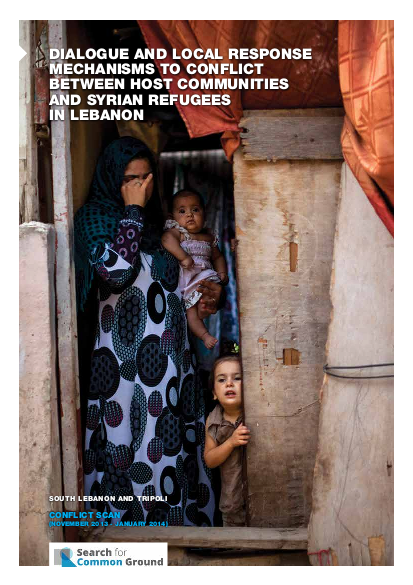
In response to the rising levels of tensions, SFCG conducted a conflict scan of 11 host communities in rural South Lebanon as well as the city of Tripoli and its environs. These communities were selected from the localities at the highest risk of tension and conflict throughout the country.
The purpose of the scan was to identify the prominent layers and dynamics of local conflict and cooperation between Lebanese residents and Syrian refugees in these communities, in addition to identifying trustworthy leaders and agents of change. The scan focused on the root causes of inter-communal tensions, perceptions, and relations. The mapping activities of this report consist of a survey with 900 respondents (50% Syrians and 50% Lebanese) across all target communities as well as a total of 40 qualitative
focus groups and 41 interviews with key local informants from the 11 target communities.